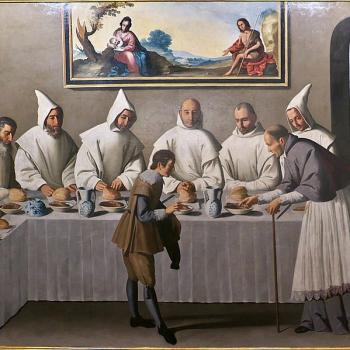The New York Times has come forward with the first round of investigative reporting on Cardinal McCarrick. Points to note:
- The victim interviewed by the Times is Robert Ciolek, one of the two priests who were previously bound by confidentiality agreements as part of their settlements with the dioceses they sued for sexual harrassment. So this is not a case of previously-silent priests or seminarians coming forward.
- It is good that the dioceses have lifted the confidentiality agreements. Hardly a deluge of transparency, but it’s a beginning.
I don’t usually read America, but when I do, it’s for statements like this:
The Catholic Church cannot pretend to be shocked about the pattern of sexual abuse of adult seminarians by Cardinal Theodore McCarrick, recently detailed in a comprehensive story in The New York Times. As The Times made clear in its reporting, many church leaders had received multiple notices of the cardinal’s behavior. Local dioceses had been told, the papal nuncio in Washington, D.C., had been told and, eventually, even Pope Benedict XVI had been told.
But none of these reports interrupted Cardinal McCarrick’s rise through the ranks nor his appointment as cardinal nor his eventual retirement in 2006 as a respected leader of the U.S. church. Nor did these reports lead to his removal last month from public ministry, which finally resulted from a credible allegation of abuse of a minor almost 50 years ago, recently revealed and acted on by the Archdiocese of New York.
Many church leaders had received multiple notices of the cardinal’s behavior.
It is true that none of the earlier reports of abuse alleged criminal behavior with minors, but they were serious enough that Cardinal McCarrick should have been called to account for the terrible misuse of his office and authority. The church and its leaders should be ashamed of their failure to do so. The slow and halting progress the church has made by way of reforms adopted in response to the sexual abuse of children, for example through the Dallas charter, has been called into question by the revelation of its ongoing failures to deal with other reports of abuse. Nor should the media, including we in Catholic media (Cardinal McCarrick was a longtime friend of this magazine and delivered the homily at our centennial celebration in 2009), be absolved of responsibility for any failure to take these and other rumors and reports as seriously as was required. To demand accountability only of the hierarchy is itself hypocrisy.
Let’s be clear: There’s a very good chance your own bishop was fully knowledgeable of the situation or even was personally involved in it all. There’s a decent chance your local pastor has some tales he’s sitting on.
If the two priests who sued their dioceses had been fabricating events, there would have been no settlement. They were not suing about a torrid affair gone wrong. The legal documents describe a situation in which many seminarians over the course of years and years were being systematically groomed and molested.
Visualize this for a moment: It is likely the man who will lay hands on your teen at confirmation is a guy who has been keeping quiet about his own or his brother bishop’s brazen disregard for chastity and common decency.
This is not about one man’s private struggle with chastity.
People experience disordered sex drives. That’s a thing. It happens. You get addicted to porn, or masturbation, or you abandon all reason and carry on an affair in violation of your vows. Plenty of honest people, Christian or not, clergy or not, find themselves pulled into sexual sins they despise. All Christians commit sins they despise. That’s why we have Confession.
McCarrick’s behavior is not the behavior of a man grappling with his own frailty. It is not a pattern of on-going repentance. It is a pattern of flagrant, shameless hedonism.
Nor is this a case of a criminal carefully covering his tracks. McCarrick was repeatedly promoted despite the fact that everyone who needed to know about his behavior was in fact informed.
How can this happen? Father Longenecker has a good explanation of at least part of the organizational dynamics here. What can you the average Joe or Jane Catholic do to change that dynamic? Be ready to help a whistle-blower make his escape.

Photo by Stefano Corso, via Wikimedia, used with permission.
















